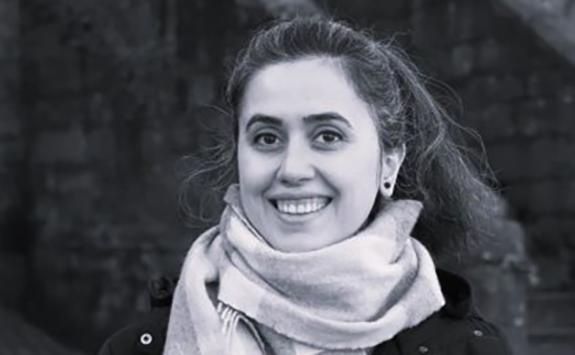Merve Gokcu Baz
About me
She is a conservator architect with experience in the conservation of historical buildings and archaeological research projects. Her research explores alternative perspectives towards conservation issues by studying participatory decision-making processes in urban heritage sites and the impact of digital tools of these processes.
Personal Interest
My research focuses on urban heritage conservation, participatory planning, and community engagement in heritage sites.

Project Title
The Impact of Digital Tools in Participatory Decision-making Processes in Urban Heritage Sites
Project Description
The growing emphasis on searching for an alternative perspective from a power and elite-driven heritage conservation practice to socially rooted processes necessitates a paradigm shift towards heritage – not only in how it is defined but also in how it is practised. In urban settings, proposals such as the Historic Urban Landscape Approach question the characteristics of heritage, shifting towards a more democratic perspective with a dynamic and changing character. This shift demands the establishment of participatory decision-making processes for value evaluation and the forging partnerships for conservation projects.
With the idealisation of planning as socially constructed processes based on human interaction, issues such as participatory planning and governance models are widely discussed in planning. The methods of participation tools were developed and with the advent of Information and Communication Technologies, digital tools started to be used as complementary to the conventional methods. Despite the widespread discussion in participatory planning and digital participation tools in urban planning, these topics remained understudied in the heritage field.
Drawing on these issues, this study delves into the role of participatory decision-making processes in urban heritage sites and the impact of digital tools. The central question is: How can digital participation tools contribute to participatory decision-making in urban conservation? The study aims to understand the role of governance models in achieving participatory decision-making processes in heritage management and how digital tools play a role in these processes. It explores this through case study research in Lower Ouseburn Valley, Newcastle upon Tyne – an area regenerated since the late 1990s, with various governance models centring around the Ouseburn Trust. Two specific instances where digital participation tools were employed are examined. One was designed as a Participatory GIS, while the other emerged as social activism against planning proposals within the conservation area, facilitated through social media. The study employs participant observation, in-depth interviews and social media analysis to elucidate the reasons and approaches of people when engaging in these processes and to assess the impact of digital tools.
Supervisors
Papers and Publications
Gökcü Baz, M., Başoğlan Avşar, Ö., Özbek, Ç., Baz, M., & Söğüt, B. (2024). Understanding the role of local stories in living archaeological heritage sites: the case of Stratonikeia. International Journal of Heritage Studies, 30(8), 937–953. https://doi.org/10.1080/13527258.2024.2353566
Conference Presentations
Gökcü Baz, M. (2024, June 3-6). Participatory Decision-Making Processes and the Authenticity of Urban Environments: An Investigation in Newcastle upon Tyne, UK [Conference presentation]. Association of Critical Heritage Studies Conference, Galway
Gökcü Baz, M., Başoğlan Avşar, Ö., Özbek, Ç., Baz, M., & Söğüt, B. (2023, June 28-30). Understanding the role of local stories in living archaeological sites [Conference presentation]. Heritages: Past and Present – Built and Social, AMPS (Architecture, Media, Politics, Society), Prague.
Research Group Memberships
Association of Critical Heritage Studies (ACHS)
Global Urban Research Unit (GURU)
Funding
Turkish Ministry of National Education
Qualifications
BA in Architecture – Middle East Technical University
MA in Conservation of Cultural Heritage – Middle East Technical University
Contact
